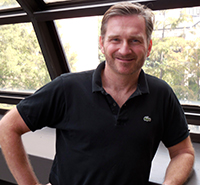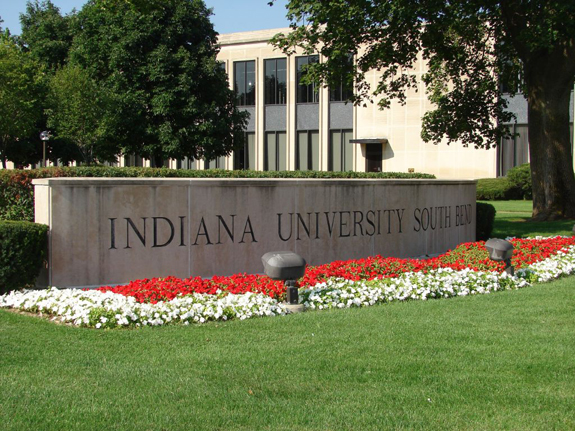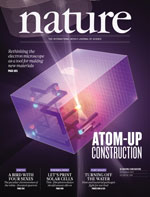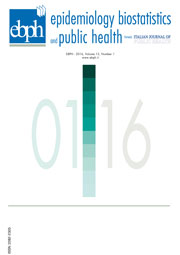Authors react in a variety of ways to criticism of their work. Some stonewall, some grit their teeth but make corrections, and others thank their critics. But what about bribery? Continue reading Did the author of a now-retracted article bribe a critic to silence him?
Author: Megan Scudellari
A diabetes researcher sued his former employer for defamation. Here’s the story.

The last decade hasn’t exactly been drama-free for Franck Mauvais-Jarvis, head of the Diabetes Research Program at Tulane University.
After being accused of falsifying three figures in a submitted manuscript, Mauvais-Jarvis sued his accusers and officials at his former employer — Northwestern University — for defamation and conspiracy in 2011.
In 2014, a judge dismissed the suit. We wish we could tell you more details about it—such as what the university’s misconduct investigation found, or how the lawsuit was concluded—but they remain shrouded in mystery. What we know is based on court records from the lawsuit, which we recently obtained through an unrelated public records request. Even without all the details, it’s a long, sordid tale, involving a lot of finger-pointing and allegations of misconduct.
In 2008, a former research technician in the lab of Mauvais-Jarvis, then an associate professor of medicine at Northwestern University, raised concerns of fabrication in two figures in a paper on the regulation of insulin synthesis that had been submitted the Journal of Biological Chemistry. An inquiry committee at the university unanimously concluded that research misconduct charges against Mauvais-Jarvis were not credible.
But then a third figure in the manuscript was found to be “inaccurate,” and the university initiated a second inquiry. That’s when Mauvais-Jarvis — whose papers have been cited more than 2,000 times, according to Clarivate Analytics’ Web of Science, formerly part of Thomson Reuters — initiated a lawsuit. Continue reading A diabetes researcher sued his former employer for defamation. Here’s the story.
“Strange. Very strange:” Retracted nutrition study reappears in new journal
 In an unusual turn of events, a nutrition paper has come back to life a year after being pulled from its original publication.
In an unusual turn of events, a nutrition paper has come back to life a year after being pulled from its original publication.
After the paper was retracted from the journal Obesity, the authors revised it and republished it in another journal, Pediatric Obesity. Both journals are published by Wiley. The second version of the paper doesn’t mention the previous retraction. Indeed, the journal editor told us he didn’t know the paper had been retracted. Still, he stood by his decision to publish it.
The authors told us the paper was retracted after editors at Obesity raised concerns over the authors’ methodology. The authors revised the paper, adding some analysis and explanation of their methodological approach, and said the new version was accepted by peer reviewers before being published in Pediatric Obesity.
However, an outside expert who reviewed both papers for us said he thinks the authors didn’t change enough. According to Patrick McKnight, head of the Measurement, Research methodology, Evaluation, and Statistics group at George Mason University and a Statistical Advisory Board member of STATS.org:
Continue reading “Strange. Very strange:” Retracted nutrition study reappears in new journal
After lawsuit threat, journal forces author to heavily revise education paper
 Under threat of a lawsuit, an education journal changed its mind about publishing a paper that it had already accepted after peer review.
Under threat of a lawsuit, an education journal changed its mind about publishing a paper that it had already accepted after peer review.
Last summer, Education Policy Analysis Archives, published by the Mary Lou Fulton Teachers College at Arizona State University, informed San Francisco State University professor Stanley Pogrow that the journal would be publishing his paper criticizing a widely used reform intervention for schools in poor districts called Success For All.
According to Success For All‘s website, the program is currently used in more than 1,000 schools in 48 states and received just over $10.5 million in grant funding in 2015. In 2010, the program was one of four recipients of the U.S. Department of Education’s $50 million Investing in Innovation Scale‑up grant.
Yet when Success For All’s co-developer, Robert Slavin at Johns Hopkins University, read a pre-publication draft of the paper, he threatened the journal with legal action if they published it. According to Slavin, the manuscript contained “libelous” and “defamatory” statements.
Subsequently, ASU declined to publish the accepted paper, and instead told Pogrow they would only publish a revised piece on the methodology used to evaluate which school interventions are effective — and thus should receive public funds. The revised paper does not directly mention Success For All or Slavin in the text (although it cites past articles by Pogrow criticizing the program). The revision, which Pogrow agreed to, “gutted the article,” he told us. Continue reading After lawsuit threat, journal forces author to heavily revise education paper
Whistleblower gets court backing in defamation case — but at a cost
 It’s been a long and winding road for a whistleblower at Indiana University, South Bend.
It’s been a long and winding road for a whistleblower at Indiana University, South Bend.
After Mark Fox, a professor of management and entrepreneurship accused two business professors of plagiarism in 2012, a university investigation found one of the two men — Douglas Agbetsiafa, the former chair of the economics department — guilty of plagiarism, and terminated him in January 2014. The other professor was cleared of any wrongdoing — then sued Fox for defamation in June, 2014.
Fox won the case, but it dragged on. More than two years later, in December 2016, the Indiana Supreme Court declined to hear an appeal.
Fox told us:
Continue reading Whistleblower gets court backing in defamation case — but at a cost
Nature paper with massive correction can’t be reproduced, says independent group
 In 2011, authors of a Nature letter caught some flak for issuing a lengthy correction to a neuroscience paper that had raised eyebrows within days of publication — including some suggestions it should be retracted.
In 2011, authors of a Nature letter caught some flak for issuing a lengthy correction to a neuroscience paper that had raised eyebrows within days of publication — including some suggestions it should be retracted.
The correction notice, published months after the original letter, cited errors in image choice and labeling, but asserted the conclusions remained valid.
Now, those conclusions appear up for debate. In a recent Nature Brief Communications Arising (BCA) article, a team that raised concerns about the paper five years ago says they are unable to reproduce the results. But the authors of the original paper aren’t convinced: They argue that the BCA fails to cite important evidence, has a “complete absence or low quality of analysis,” and the scientists disregard some of their data.
Continue reading Nature paper with massive correction can’t be reproduced, says independent group
Plagiarism concerns raised over popular blockchain paper on catching misconduct
 A graduate student at McGill University is raising concerns that a popular F1000Research paper may have plagiarized his 2014 blog post that — ironically — proposed a method to prevent scientific misconduct. The student calls the paper “a mirror image” of his work.
A graduate student at McGill University is raising concerns that a popular F1000Research paper may have plagiarized his 2014 blog post that — ironically — proposed a method to prevent scientific misconduct. The student calls the paper “a mirror image” of his work.
The February 2016 F1000Research paper, “How blockchain-timestamped protocols could improve the trustworthiness of medical science,” was highlighted by us earlier this year, as well as by The Economist and FierceBiotech. In the paper, physician Greg Irving of the University of Cambridge and John Holden of Garswood Surgery in the UK describe a proof-of-concept of how to use a blockchain—a technology best-known for powering the digital currency bitcoin—to audit scientific studies and prevent misconduct in clinical trials.
After the student brought his concerns to the journal, Irving and Holden published a second version of their paper online, this time prolifically citing the blog entry and altering language that had been identical between the two pieces. F1000Research says “the scientific content is still valid” and has no plans to retract the article. Two public peer reviewers of the work also stand by its validity. Continue reading Plagiarism concerns raised over popular blockchain paper on catching misconduct
Scientists call for retraction of “seriously misleading” paper with asbestos industry ties
 Eleven scientists are asking a journal to consider retracting an asbestos paper with industry ties for including “seriously misleading information,” “several wrong statements,” and thrice citing a journal that doesn’t appear to exist.
Eleven scientists are asking a journal to consider retracting an asbestos paper with industry ties for including “seriously misleading information,” “several wrong statements,” and thrice citing a journal that doesn’t appear to exist.
Editors of the journal, Epidemiology Biostatistics and Public Health, however, say they will not retract the article, based on the advice of two external reviewers.
An earlier correction for the paper, “Further Studies of Bolivian Crocidolite – Part IV: Fibre Width, Fibre Drift and their relation to Mesothelioma Induction: Preliminary Findings,” cited previously undisclosed competing interests for four of the paper’s five authors.
Earlier this year, scientists criticized “gross mistakes” in another paper from three of the same authors: Edward Ilgren, Yumi Kamiya, and John Hoskins. EBPH subsequently issued two corrections but did not retract that paper. Read our full coverage here. Continue reading Scientists call for retraction of “seriously misleading” paper with asbestos industry ties
Corrections chip away at asbestos paper for conflicts of interest, “misleading” citation
 The journal Epidemiology Biostatistics and Public Health has issued back-to-back corrections for a 2015 paper after the authors failed to disclose conflicts of interest with the asbestos industry and included an “erroneous citation.”
The journal Epidemiology Biostatistics and Public Health has issued back-to-back corrections for a 2015 paper after the authors failed to disclose conflicts of interest with the asbestos industry and included an “erroneous citation.”
The mistaken citation was more than just a clerical error, critics argue — it undermines one of the key arguments of the paper, “Critical reappraisal of Balangero chrysotile and mesothelioma risk,” which disputes claims that an asbestos mine in northwest Italy was responsible for numerous cases of an aggressive form of cancer called mesothelioma. The authors, led by Edward Ilgren formerly of Oxford University, claim that “myriad sources” of other forms of asbestos—rather than the asbestos produced at the mine, called chrysotile—exist in the region “to account for the alleged cases.”
However, according to a recently added correction, the citation does not support one of the authors’ claims about how other forms of asbestos arrived at the mine area.
Four retractions follow Swedish government findings of negligence, dishonesty
 A Swedish ethical review board has censured two biologists and their employer, Uppsala University, for events related to “extensive image manipulations” in five papers published between 2010 and 2014. The case has led to criticism from an outside expert — who brought the allegations to Uppsala — over the current system in Sweden for handling such investigations.
A Swedish ethical review board has censured two biologists and their employer, Uppsala University, for events related to “extensive image manipulations” in five papers published between 2010 and 2014. The case has led to criticism from an outside expert — who brought the allegations to Uppsala — over the current system in Sweden for handling such investigations.
Four of the papers have been retracted, and the authors have requested a correction in the fifth.
After an eight-month investigation, in September the government-run Expert Group for Scientific Misconduct at the Central Ethical Review Board in Stockholm, Sweden, concluded that Uppsala professor Kenneth Söderhäll — who has published more than 200 papers — and lecturer Irene Söderhäll acted “negligently” and “dishonestly” by Continue reading Four retractions follow Swedish government findings of negligence, dishonesty
